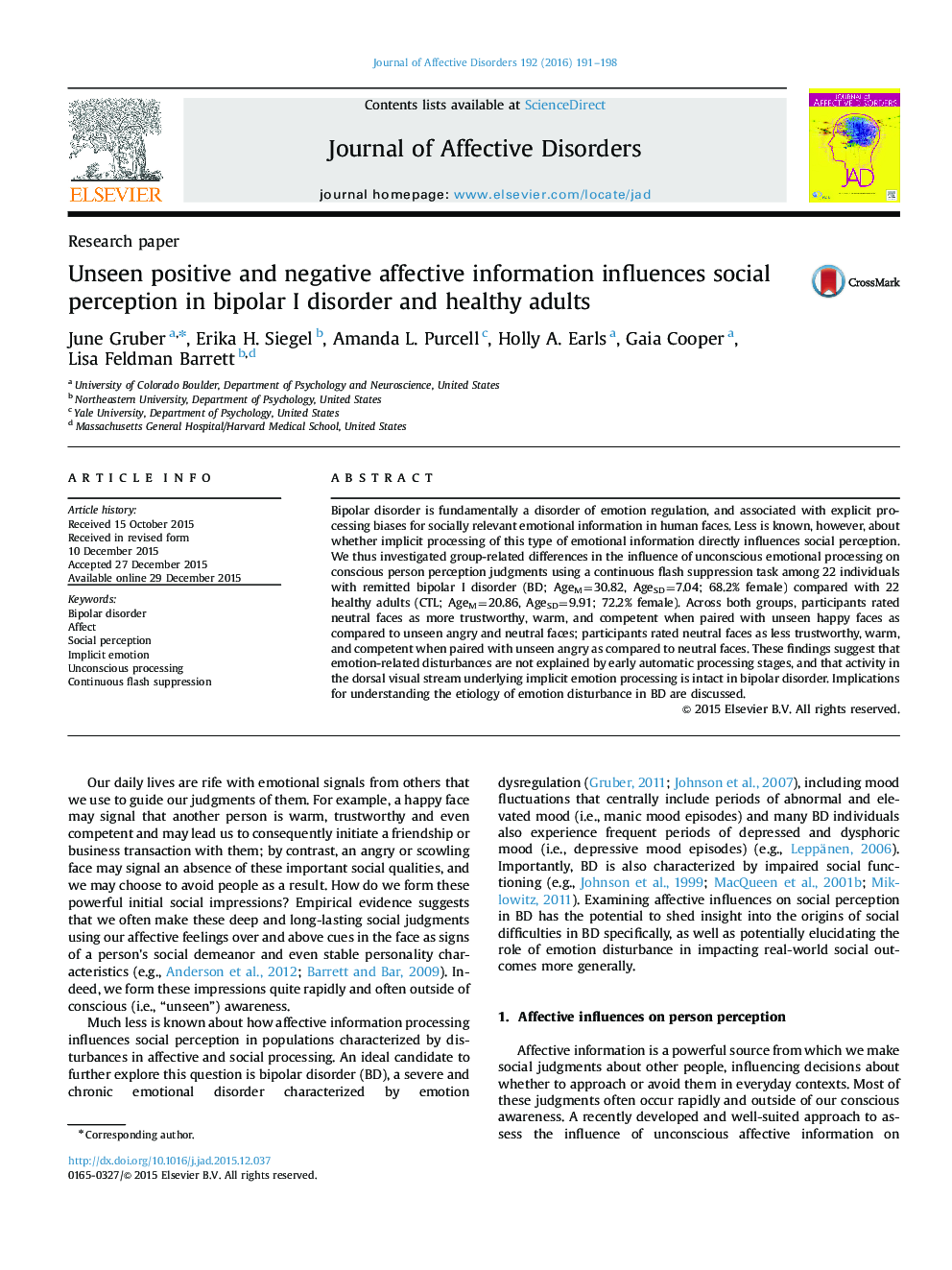| Article ID | Journal | Published Year | Pages | File Type |
|---|---|---|---|---|
| 6230629 | Journal of Affective Disorders | 2016 | 8 Pages |
Abstract
Bipolar disorder is fundamentally a disorder of emotion regulation, and associated with explicit processing biases for socially relevant emotional information in human faces. Less is known, however, about whether implicit processing of this type of emotional information directly influences social perception. We thus investigated group-related differences in the influence of unconscious emotional processing on conscious person perception judgments using a continuous flash suppression task among 22 individuals with remitted bipolar I disorder (BD; AgeM=30.82, AgeSD=7.04; 68.2% female) compared with 22 healthy adults (CTL; AgeM=20.86, AgeSD=9.91; 72.2% female). Across both groups, participants rated neutral faces as more trustworthy, warm, and competent when paired with unseen happy faces as compared to unseen angry and neutral faces; participants rated neutral faces as less trustworthy, warm, and competent when paired with unseen angry as compared to neutral faces. These findings suggest that emotion-related disturbances are not explained by early automatic processing stages, and that activity in the dorsal visual stream underlying implicit emotion processing is intact in bipolar disorder. Implications for understanding the etiology of emotion disturbance in BD are discussed.
Related Topics
Health Sciences
Medicine and Dentistry
Psychiatry and Mental Health
Authors
June Gruber, Erika H. Siegel, Amanda L. Purcell, Holly A. Earls, Gaia Cooper, Lisa Feldman Barrett,
